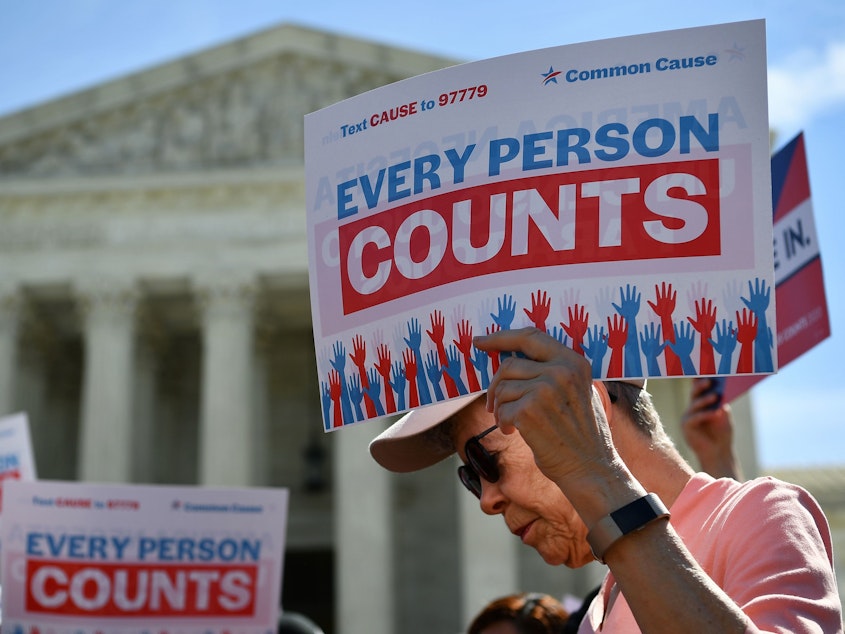Timeline: The Census Citizenship Question's Unusual Journey To The Supreme Court

Three federal judges have ruled that the process the Trump administration followed in pushing to add a citizenship question to the 2020 census failed to meet the mark.
In Maryland, U.S. District Judge George Hazel summed it up as "woefully deficient," while U.S. District Judge Richard Seeborg in California called the administration's efforts to find a justification for the question "a cynical search."
"They are the acts and statements of officials with something to hide," U.S. District Judge Jesse Furman wrote in his ruling for the New York-based lawsuit, which is now under review by the Supreme Court.
Commerce Secretary Wilbur Ross, who oversees the Census Bureau, has testified before Congress that the Justice Department "initiated" the request for the question.
But a trail of internal emails, memos and other court filings released as part of the lawsuits filed by dozens of states, cities and other groups tell a different story. In fact, Ross requested Commerce Department staff to get a citizenship question on the census months before the Justice Department became involved. The question, Ross says, was "previously raised" early in the administration by other "senior" Trump officials.
Here is an abbreviated timeline of the citizenship question's unusual journey to the highest court in the country: [Copyright 2019 NPR]



